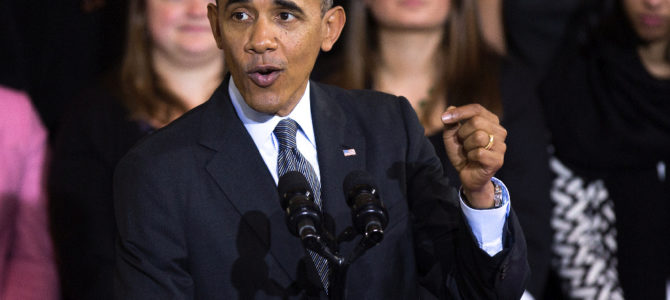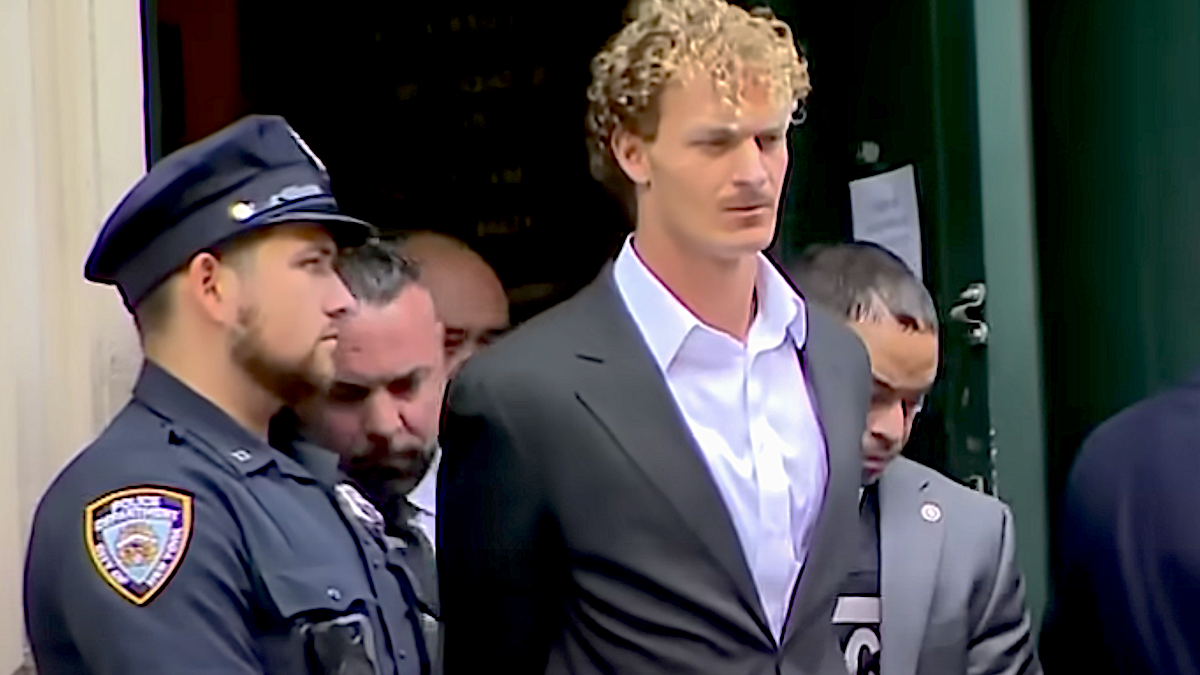
Speaking at an Obama Foundation event in Chicago on Tuesday, former president Barack Obama made headlines when he criticized “woke” cancel culture and online outrage, cautioning young people that, “The world is messy. There are ambiguities. People who do really good stuff have flaws.”
“This idea of purity and that you’re never compromised and you’re always politically woke — you should get over that quickly,” Obama said.
His remarks are noteworthy not just because he’s correct about the frailty of human nature and the folly of rushing to condemn anyone who might disagree with you, but because his admonishment was aimed primarily at the left. Cancel culture is, after all, almost entirely a product of progressive activists seeking to punish anyone who doesn’t agree with them, doesn’t support their agenda, or holds views they find offensive. It’s the opposite of what “liberal” used to mean, and Obama’s old enough to know that.
His comments on Tuesday are worth quoting in full, because they highlight just how far the left has drifted from Obama’s current way of thinking. He said:
I do get a sense sometimes now among certain young people, and this is accelerated by social media — there is this sense sometimes of the way of me making change is to be as judgmental as possible about other people, and that’s enough. If I tweet or hashtag about how you didn’t do something right or used the wrong verb, then I can sit back and feel pretty good about myself. Did you see how woke I was, I called you out… That’s not activism. That’s not bringing about change. If all you’re doing is casting stones, you’re probably not going to get that far.
Watch President @BarackObama make an excellent point about call-out culture. pic.twitter.com/P6mw9aLWTQ
— attn (@attn) October 30, 2019
This isn’t the first time Obama has talked this way. At a town hall in 2015, he lambasted “coddled” liberal college students who can’t tolerate conservative speakers on campus. “Anybody who comes to speak to you and you disagree with, you should have an argument with them, but you shouldn’t silence them by saying you can’t come because I’m too sensitive to hear what you have to say,” he said.
To the Left, Cancel Culture Is Good
The irony here is that the left, which once lionized Obama and to some extent still does, isn’t interested in what he has to say about any of this. Today, cancel culture and online outrage are the modus operandi of progressive activists on campus and across social media.
Often enough, that outrage migrates offline. We’ve all seen the images and videos of students shouting down speakers, storming stages, ripping mics away from moderators, and shutting down conservative speaking events through intimidation. In the case of Charles Murray’s visit to Middlebury College in 2017, an actual mob attacked him and a faculty member, who suffered whiplash and a concussion.
As with most things that start on campus, cancel culture is now seeping into the mainstream, and especially in corporate America. Just last month, “Saturday Night Live” fired comedian Shane Gillis after videos of him using racial slurs went viral, despite a seemingly heartfelt apology from Gillis. Nike canceled its Betsy Ross flag sneakers this summer after Colin Kaepernick criticized the design as offensive. The Academy Awards told comedian Kevin Hart he had to step down as host of the Oscars unless he publicly apologized for some supposedly homophobic jokes he told years earlier. The list goes on.
For the left, this is all good news. The pressure that online outrage and cancel culture exert on celebrities, schools, corporations—even regular people no one’s ever heard of, like Iowan Carson King—is a welcome development in our society, not something to lament. In a recent take on cancel culture at the New Republic, Osita Nwanevu put a benign gloss on the whole thing because, after all, these are just tweets we’re talking about, it’s not like anyone’s really getting hurt: “Perhaps we should choose instead to understand cancel culture as something much more mundane: ordinary public disfavor voiced by ordinary people across new platforms.” (A recent Washington Post op-ed takes it a step further, declaring, “Critics of ‘cancel culture’ really just hate democracy.”)
Nwanevu argues that everyone who’s been “canceled” is doing fine. Aziz Ansari has a new Netflix special. Kyler Murray, the Heisman winner who last year had to apologize for homophobic tweets he’d written as a teen, is now the starting quarterback for the Arizona Cardinals. Dave Chapelle is a multi-millionaire.
The larger point here is that, far from being a problem, cancel culture is actually a good and salutary development in public life—a way for the marginalized and powerless to hold the powerful accountable (if by “powerless” you include all major universities, Hollywood, and most of corporate America). At the very least, writes Nwanevu, cancel culture “cannot really be understood as a response to the advent of an oppressively censorious monoculture,” because look, Sean Spicer was on “Dancing With the Stars.”
Obama Helped Sow the Seeds of Cancel Culture
But perhaps the best example of how far to the left progressives have drifted from Obama’s way of thinking is the ongoing spectacle of 2020 Democratic presidential candidates trying to out-woke each other. Beto O’Rourke, who’ll apparently say anything in hopes of staying in the race, wants to tax churches and other religious institutions that oppose gay marriage. Julian Castro wants to give free health insurance to transgender illegal immigrants. Even former vice president Joe Biden, the so-called moderate in the race, has been forced to tack left, abandoning his long-held support for the Hyde Amendment, which prohibits federal funding for abortion.
It’s commonplace on Democratic debate stages for the candidates (and moderators) to refer to President Trump as a racist. The arguable frontrunner, Sen. Elizabeth Warren, told NPR in August that “when the white supremacists call Donald Trump one of their own, I tend to believe them.”
It’s hard to imagine Obama engaging in this sort of rhetoric. But then again, the seeds of cancel culture and leftist outrage were undoubtedly planted during his tenure in the White House. Back in 2012, for example, Obama would never have openly called Mitt Romney a racist. But he didn’t have to because surrogates like Democratic National Committee Chairwoman Debbie Wasserman Schultz did it for him.
Ahead of the 2014 midterms, Rep. Nancy Pelosi said Republicans were reluctant to take up immigration reform because of race. That same year, Obama’s Attorney General Eric Holder suggested race was a factor in the “unprecedented, unwarranted, ugly and divisive adversity” he faced from GOP lawmakers.
Beyond race, it was Obama who popularized the idea that “the debate is over”—about health care, climate change, education, and much else. Arguably, “the debate is over” is now the mantra of the woke: if you disagree or offend, you get canceled.
So it’s all well and good that Obama is concerned about the corrosive effects of cancel culture and militant wokeness. He should be, as should we all. But his warnings and reprimands are a day late and a dollar short. The woke left isn’t listening, not even to Obama. To them, the debate is over.









